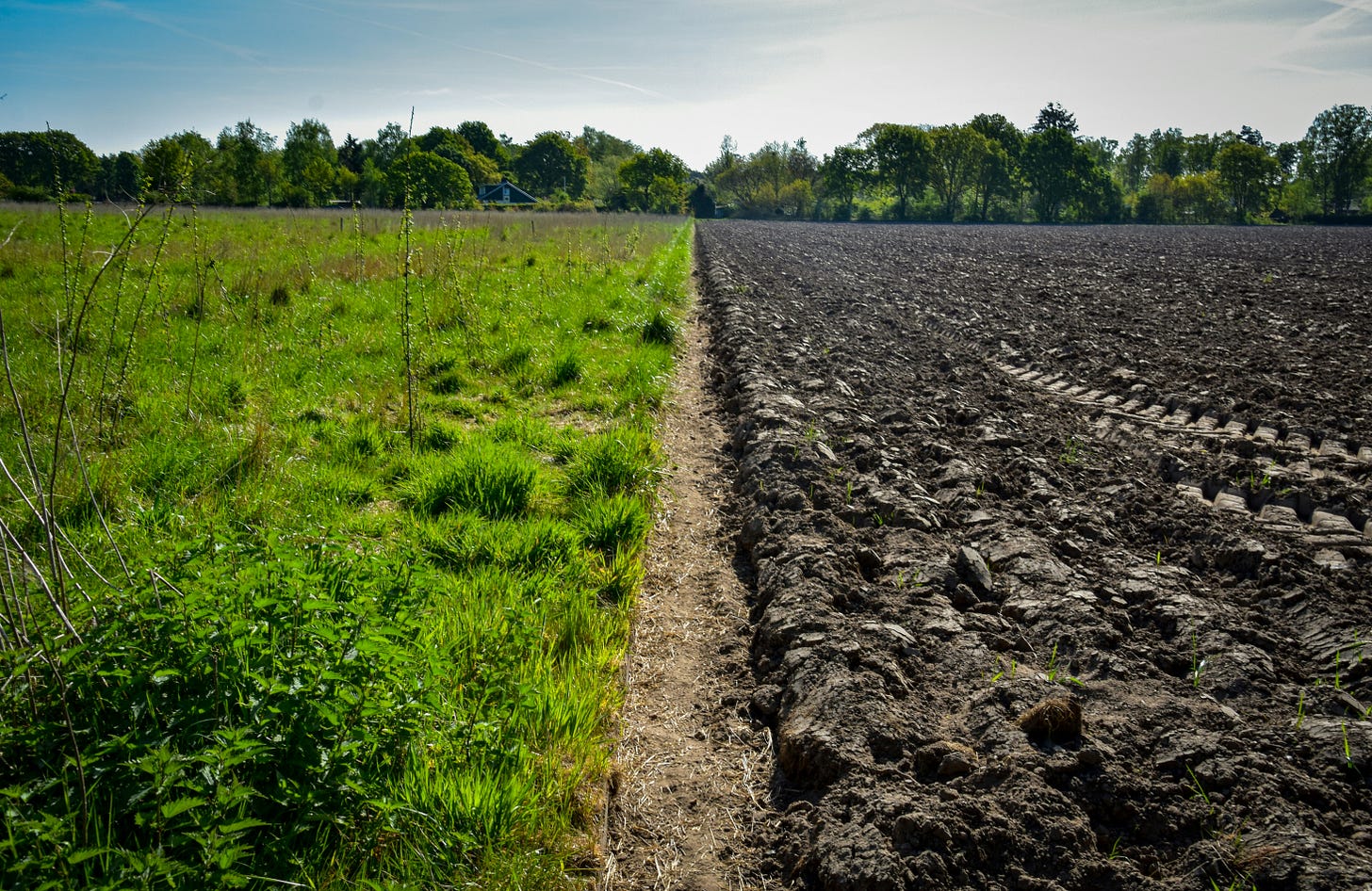
What Caught My Eye: Readings and reflections on regenerative finance, farming, and the forces reshaping sustainability
Every week, I come across stories, insights, and case studies that sharpen how I think about regenerative processes across domains such as agriculture, climate accountability, and systemic change. Below are some that offer provocative, practical, and/or insightful ideas worth a closer look.
From Africa’s push for sovereignty in its green transition to the quiet revolution in lab-grown chocolate; from Hawaii’s Indigenous-informed regenerative tourism framework to the EU’s proposed nature credits—the pieces below highlight efforts to embed equity, circularity, and authenticity into sustainability. They remind us that regenerative futures are as much about justice and governance as they are about tech and ecosystems.
Read below for highlights and links on the following topics. I hope one or two spark something for you too.
Africa’s Sustainability Struggle – Why ecological regeneration must also mean autonomy and justice for African nations
Lab-Grown Chocolate – How cellular agriculture could end cacao-linked deforestation and child labor
Regenerative Tourism Rethink – Hawaii’s Indigenous-informed statute shows what travel transformation could look like
Tech-Powered Regeneration – Deep tech as a partner—not a replacement—for microbial life and on-the-ground resilience
10-Year Soil Reboot – A blueprint for U.S. farm revival through syntropic systems, antitrust reform, and carbon markets
Nature Credits Blueprint – The EU’s emerging biodiversity market and its stakes for Indigenous participation
Regenerative Hops – How a seventh-generation Oregon farm is transforming the craft beer supply chain
Circular Battery Blueprint – CATL and Ellen MacArthur Foundation team up to rewire the battery economy for reuse and recycling
If you see any stories of note about these themes, please do be in touch!
Africa’s Sustainability Struggle
Africa’s environmental and economic future is undermined by colonial legacies, extractive transnational corporations, and neocolonial monetary systems. While countries like the Democratic Republic of the Congo produce the majority of global cobalt—vital for green tech—wealth largely flows to firms like Tesla and Glencore, not local communities. The piece calls for African autonomy, ethical trade models, and stronger unions to ensure that sustainability in Africa means both ecological regeneration and social justice.
Read more: Building a sustainable Africa from the ground up (The Boar)
Lab-Grown Chocolate
Faced with climate disruption, labor abuses, and toxic contaminants in conventional cacao farming, startups like California Cultured are cultivating lab-grown chocolate to build a cleaner, more resilient supply chain. Using cacao cells, they aim to eliminate deforestation, child labor, and unstable yields while meeting growing demand.
Read more: Can We Cultivate Sustainable Supply Chains for Chocolate? (Sustainable Brands)
Regenerative Tourism Rethink
At Newsweek’s travel summit, Hawaii was spotlighted as a leader in redefining regenerative travel beyond greenwashing. Despite lacking a clear legal definition, Hawaii’s regenerative tourism statute pushes for a holistic, Indigenous-informed approach that restores ecosystems and communities. Experts warned against both greenwashing (overstating sustainability) and green hushing (downplaying it out of fear), urging businesses to embed regeneration into their operational DNA.
Read more: Hawaii Defining Regenerative Travel, Skipping Greenwashing (Newsweek)
Tech-Powered Regeneration
Rather than replacing nature, deep tech is being harnessed to accelerate regenerative agriculture by enhancing biological processes—like using AI to speed up climate-adapted plant breeding, precision tools to reduce external inputs, and “ecosystem oracles” trained on real-world ecological data. Farmers, chefs, and experts advocate for tech that supports microbial soil health and resilience, not extractive efficiency.
Read more: Deep tech in regenerative agriculture: essential ally or unnecessary intrusion? (AgFunderNews)
10-Year Soil Reboot
A nationwide transition to regenerative farming—anchored in no-till planting, diverse cover crops, holistic grazing, seed saving, and syntropic agroforestry—can rebuild topsoil, cut chemical inputs by over 50%, and boost farm profitability. With targeted subsidies, carbon credit markets, and antitrust reform, these practices promise not only ecological renewal but also economic liberation for U.S. farmers and rural communities.
Read more: Growing Prosperity: The Economic Case for a 10-Year Regenerative Transition (Daily Kos)
Nature Credits Blueprint
The EU plans to launch a biodiversity credit market by 2027, enabling verified nature-positive practices—such as restoring wetlands, removing invasive species, and practicing organic farming—to generate tradable credits. These “nature credits” must demonstrate additionality, permanence, and measurable biodiversity gains, with potential integration into permitting, supply chains, and finance, while also opening doors for Indigenous benefit-sharing.
Read more: An EU Biodiversity Market by 2027? The new EU’s Roadmap towards Nature Credits (Covington & Burling LLP)
Regenerative Hops
Westwood Farms in Oregon is bringing regenerative agriculture to craft brewing with its new brand rooted in no-till farming, cover cropping, and habitat restoration. Producing over 400,000 pounds of Salmon-Safe certified hops, the seventh-generation farm supports ecosystem health while supplying high-demand varieties like Citra® and Mosaic®—and aims to expand into barley, fruit, and nuts.
Read more: Regenerative Roots: Westwood Farms debuts new brand focused on sustainable hop farming (Craft Brewing Business)
Circular Battery Blueprint
Battery manufacturer Contemporary Amperex Technology Co. Ltd. (CATL) and the Ellen MacArthur Foundation are working to decouple battery production from virgin raw materials by embedding circularity into every stage of the battery value chain. Their strategy includes extending battery lifespan, designing for reuse, deploying 10,000+ swap stations, and operating the world’s largest battery takeback network—with over 130,000 tons recycled in 2024 alone.
Read more: CATL, Ellen MacArthur Foundation aim to accelerate circular battery economy (Recycling Today)
